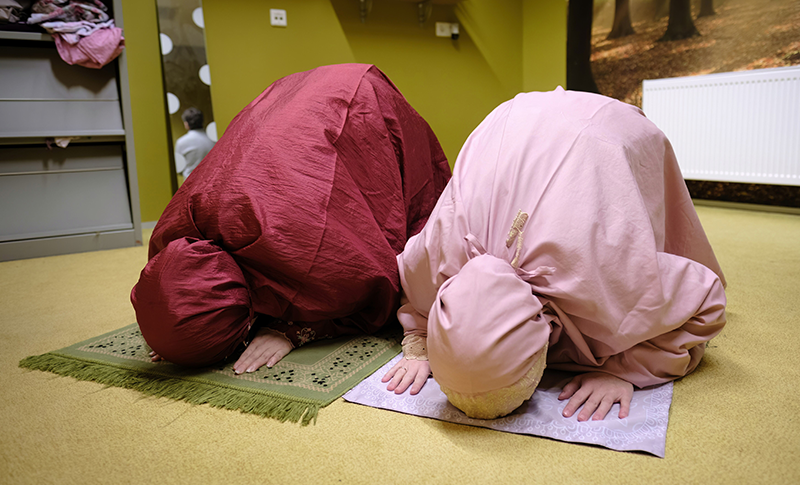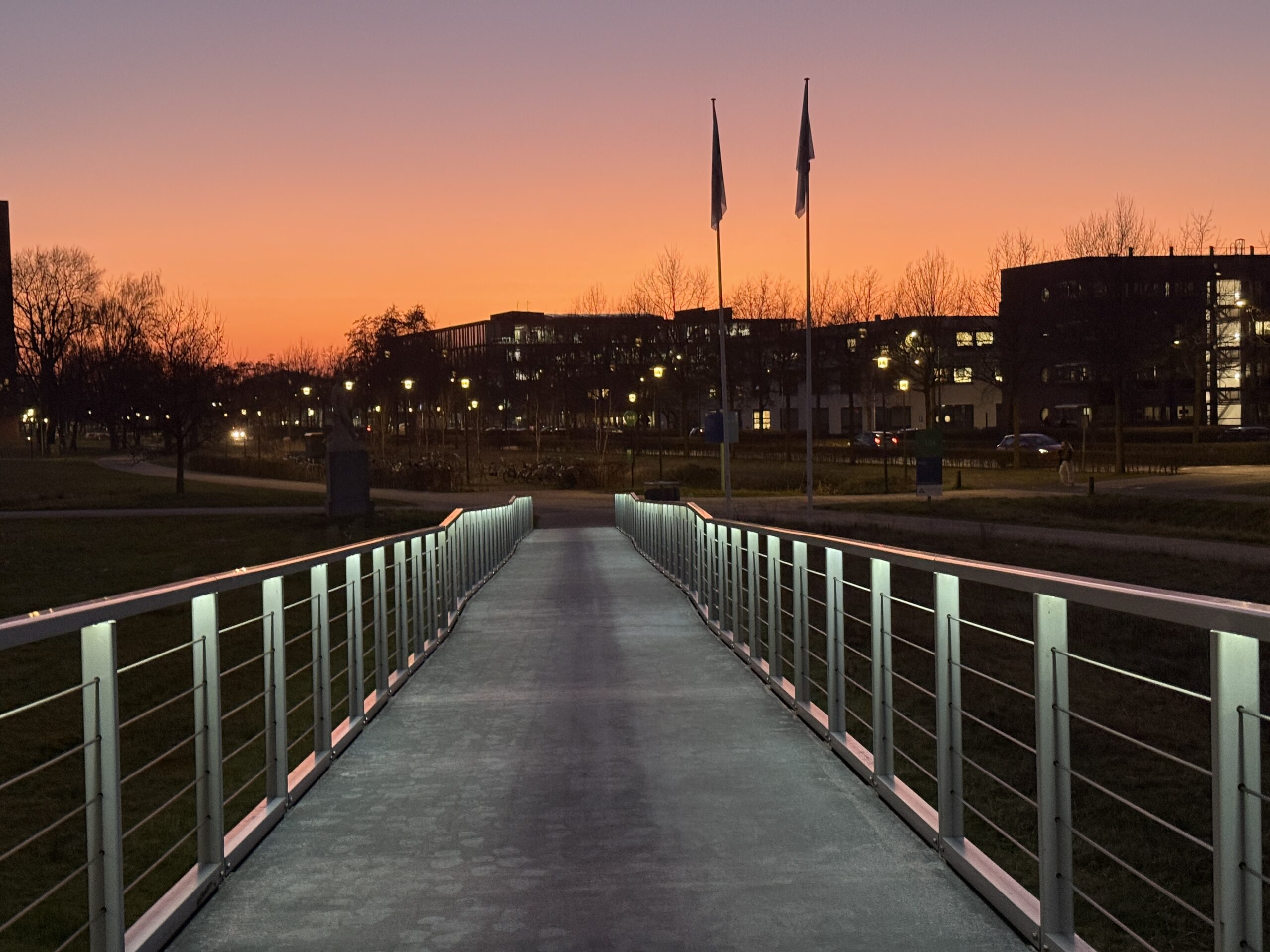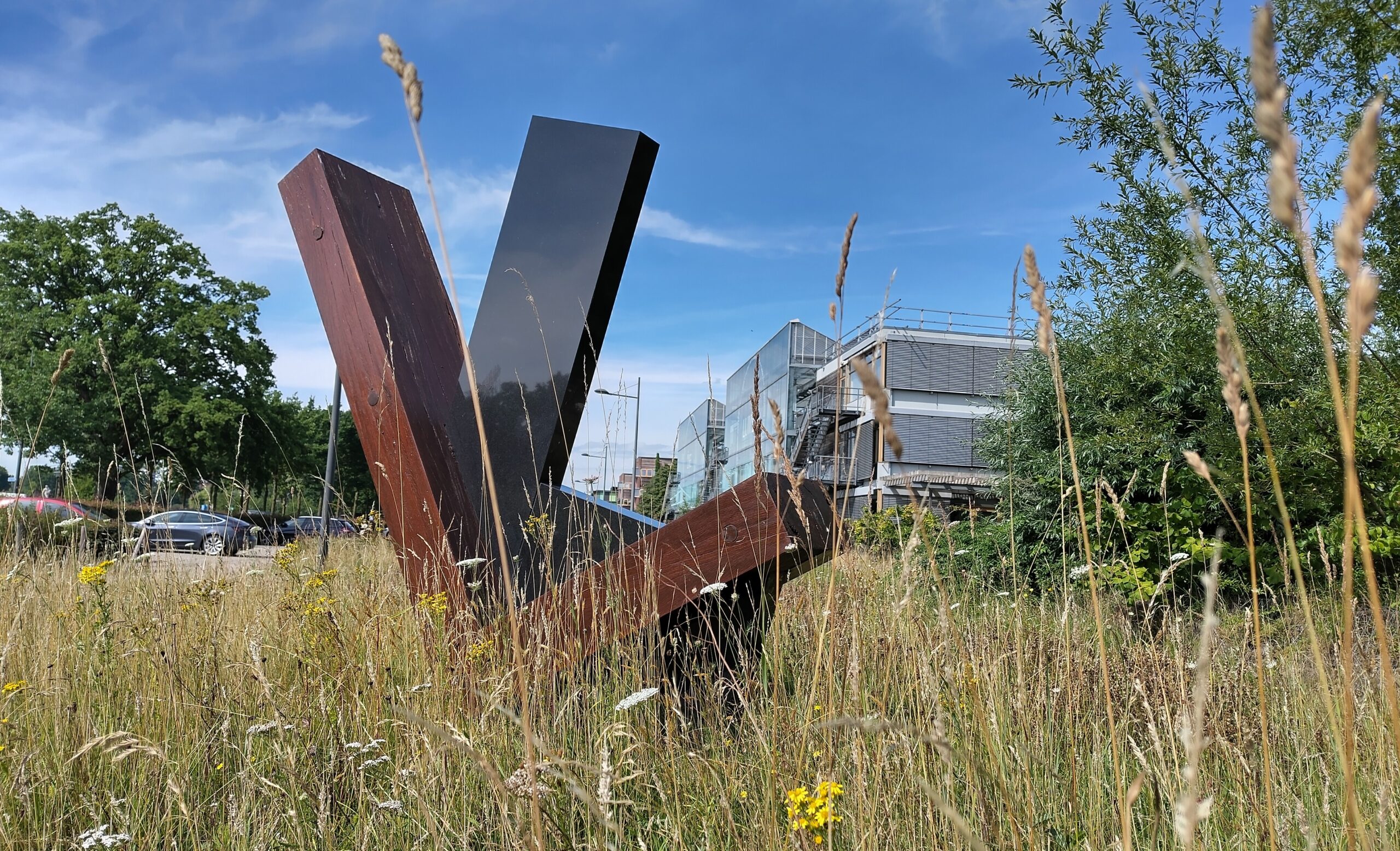Where on campus can you go to practise your faith? Although WUR is politically and religiously non-aligned, it does have places you can retreat to, to pray for example. Where are these places and do they meet the requirements? Resource investigated.
WUR itself does not publicize its prayer rooms, or ‘quiet rooms’ as it calls them. ‘WUR is a secular organization, so we don’t support particular political and religious activities and we don’t designate rooms for prayer specifically,’ says Joris Fortuin, head of Integral Facilities Management. ‘But we do provide places that people can withdraw to.’ These rooms are quite hard to find though, Resource discovered. Most of them are tucked away in a side wing or on one of the higher floors. Plus, you have to happen to know that the Churches & Contemplation webpage provides an overview ‑ albeit outdated. And in some cases you need to ask for a key card at reception.
First aid and expressing room
The quiet rooms are intended for a range of purposes. In some of them you can take a power nap and in others you can carry out medical procedures or pray.
Sometimes there are 30 people waiting to pray
Three of the six quiet rooms are also for breastfeeding mothers to sit in to express milk. These spots can be reserved via an Outlook calendar.
Fortuin: ‘For each building, the management of the science groups or other organizational units allocates the rooms to particular uses according to the needs of their employees.’ The building managers don’t usually know whether the rooms actually meet those needs: no research is done on that. But Fortuin would welcome a user survey. ‘It has been a while since we set up the quiet rooms.’ The administrators and Fortuin are also open to making changes to the quiet rooms. They would have to discuss this with the building and site managers. Gaia’s building manager Marrit Nolten has received the occasional request for a modification: ‘Someone asked for facilities for washing your feet. But we couldn’t install a water pipe just like that.’
Radix room busy
A few phone calls with building managers reveal that, with the exception of the one in Radix, most of the quiet rooms are not heavily used. Judging from the Outlook calendar and the birth announcement cards and baby pictures on the walls, expressing milk is the most common activity in them. But in Radix, the quiet room does get intensive use, especially by foreign students and guest staff, says Radix building manager Sonja Nooy. It is mainly Muslims who use the room, which has prayer rugs and Korans in various languages. And there is a low washbasin, although it is not very user-friendly as women can’t perform the washing ritual, which involves taking off their head coverings, secluded from the men. And the floor can get very wet. Zaki Ruhyaman, a board member of the Wageningen Muslim student organization Avicenna, confirms that many members pray in Radix – even taking it in turns at busy prayer times. ‘The ideal number for prayers in the room is a maximum of four people,’ he says. ‘But sometimes there are 30 people waiting, so we settle for praying nine at a time.’ Ruhyaman would therefore like to see more quiet rooms on campus, preferably one in each teaching building. ‘It takes time to go from Aurora to Radix between appointments, for example, and that can be stressful. That’s why our members often just look for an empty classroom. But they are hard to find at busy times. Besides, you don’t want to be disturbed or to disturb others. And an ordinary classroom does not have suitable washing facilities or storage space for prayer mats and Korans. The quiet room in Orion is not adequate either, for the same reasons.’
One service a year
Christians need a designated prayer room too, says Linda Juma of the Christian Student Fraction (CSF). She has asked for one several times, even. ‘There are only one or two places where you can pray quietly or do Bible study.’ Currently, CSF members usually use the quiet room in the Forum Library for these purposes, but it is often occupied, according to Juma. ‘And not all the other quiet rooms are suitable because they are used for other purposes too. The room in Radix, for instance, is furnished with Korans and prayer mats. We want to connect with God alone.’
Joël Kampen of the Association of Reformed-Church Students at Wageningen (VGSW) would also like to see a space created for large joint services: ‘Unfortunately, the university only allows the Christian students associations to organize a joint welcome service on campus once a year: during the summer AID.’ According to Josine van der Horst, a student chaplain at the student platform and chaplaincy Spectrum, the AID committee is currently pushing for that welcome service to have a broader ‘religious and spiritual character’: ‘There should be room for Muslims and Buddhists as well.’
But in general, WUR is keen to maintain its secular status, says Van der Horst. ‘That is why the Christian student associations hold their celebrations off-campus, in places like the Arboretum Church or the Grote Kerk in the town centre. Other joint activities such as Bible study groups are held in student society clubhouses or at members’ homes.
Hindu holidays
Aravind Thanikai Arasu is a Hindu, but does not feel the need for a special room for his religious activities. ‘I pray in my room,’ he says. He doesn’t think other Hindu students miss a physical space of their own, either.
We would like to organize a church service during the winter AID as well
He belongs to an Indian student association that celebrates Hindu holidays such as Diwali and Holi in small groups. ‘Those celebrations are open to everyone, including non-Hindus, just like they are in India.’ The association has organized Diwali and Holi celebrations in the Bongerd several times. ‘The fact that we can celebrate these festivals at the Bongerd shows WUR’s willingness to facilitate opportunities for students to attend diverse religious and cultural events.’ Bongerd director Henri ten Klooster agrees to some extent: ‘We don’t involve ourselves in the specifics of the activities. But to me the Holi festival seemed to bring people together through colours more than through religion.’
Meditation
Spectrum organizes a well-attended mindfulness meditation session for staff and students in the Forum Library twice a week. So does WUR facilitate that? ‘Everyone can benefit from mindfulness,’ says Ania Ektate, who does not call herself a Buddhist but practises the teachings of Zen Buddhism. She is a Spectrum board member and runs the meditation sessions. ‘We would like to have a designated space for meditation, with storage space for the mats and cushions,’ she says. ‘But the Forum Library is very open to our meditations. I think that’s because people realize that meditation helps against stress.’
Support and dividing line
There is a long tradition of student chaplaincies at most universities, including WUR. Until 2012, the student chaplaincy was housed in Duivendaal, where fortnightly church services and Bible studies were held. In 2012, the student chaplaincy merged into Spectrum and its focus broadened to spirituality rather than Christianity alone. WUR still has three student chaplains, who work at Spectrum but are employed by a local Protestant church, the Protestant Church of the Netherlands and the Mennonite congregation respectively. The chaplains are there for everyone, whether religious or not. Van der Horst: ‘Unfortunately, we no longer have a Catholic chaplain, but we do have a Zen Buddhist life coach. We would like to have an imam on the team as well.’ The chaplains are not paid by WUR, but the university pays for the books and office space in the Building with the Clock, provided they do not use the building for religious activities. Van der Horst: ‘It is nice that WUR offers space for our activities.’
Avicenna board member Ruhyaman thinks the dividing line drawn by WUR is a bit too rigid at times: ‘As a Muslim student organization, we do a lot for people’s mental health too. Together with Spectrum, for instance, we recently organized a lecture on depression from the perspective of the Koran and the Bible. We held that meeting in Thuis because WUR policy meant it could not be held on campus due to the religious angle’. Actually, Spectrum quite often uses venues off-campus, Van der Horst explains. ‘It would be handy to have our own space on campus, but at present we often make use of Thuis, which is spacious and low-threshold.’ A bit more publicity for Spectrum would be welcome too, says board member Ania Ektate. ‘Everyone knows where to find a student psychologist, dean or GP and we refer students to those bodies too. It would be helpful if WUR in turn referred students to organizations like Spectrum.’

 The quiet room in Radix is heavily used, especially by foreign students and guest staff who come there to pray. Photo Guy Ackermans
The quiet room in Radix is heavily used, especially by foreign students and guest staff who come there to pray. Photo Guy Ackermans 

